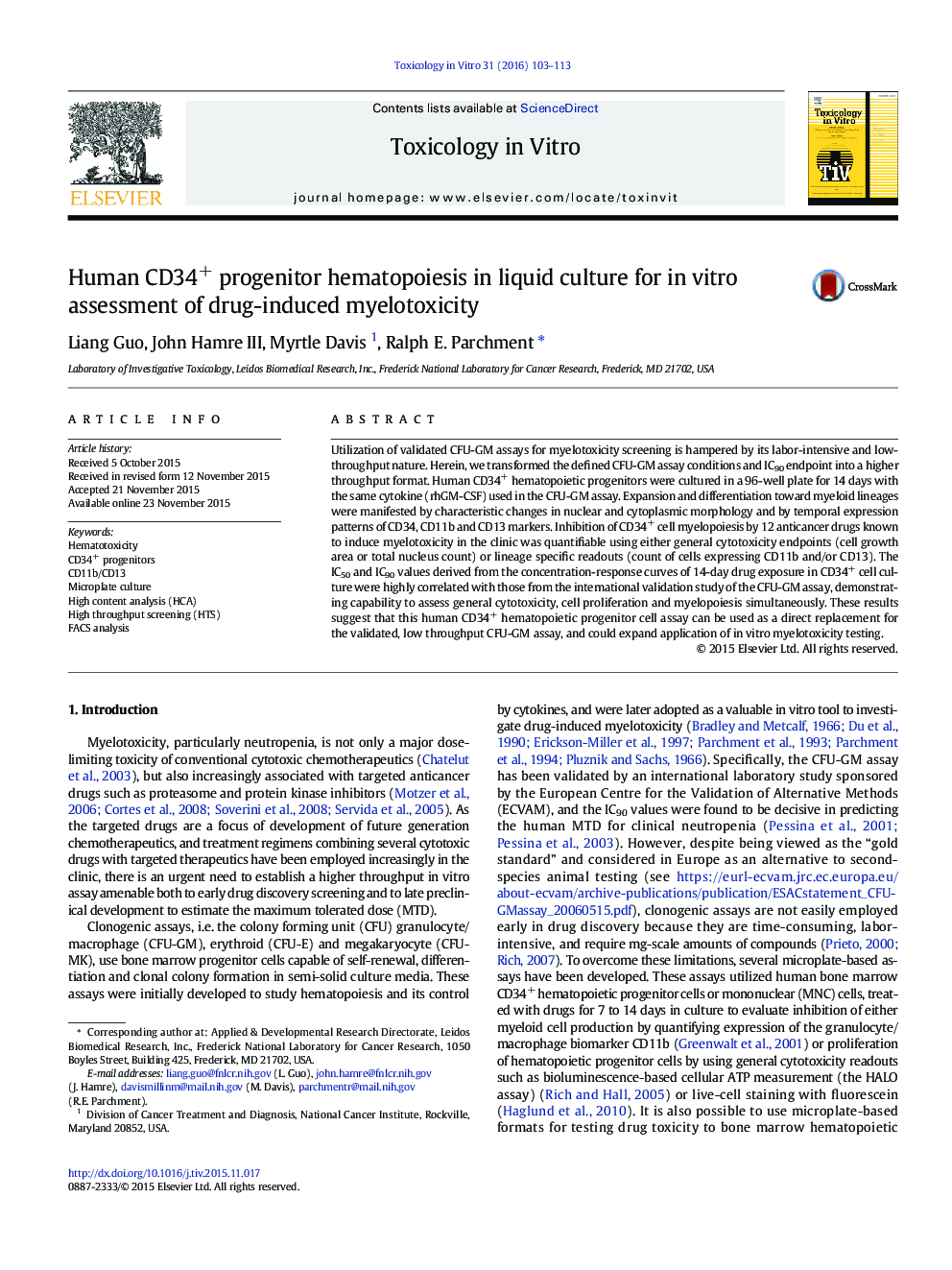| Article ID | Journal | Published Year | Pages | File Type |
|---|---|---|---|---|
| 5861202 | Toxicology in Vitro | 2016 | 11 Pages |
â¢Human CD34 + cells differentiate into myeloid lineages liquid-cultured with rhGM-CSFâ¢Myelotoxicity is quantifiable by the general cytotoxic or lineage specific readoutsâ¢The IC50 or IC90 of 13 drugs from 14-day CD34 + cultures correlates with CFU-GM dataâ¢Human CD34 + cultures can substitute CFU-GM assays for higher throughput screening
Utilization of validated CFU-GM assays for myelotoxicity screening is hampered by its labor-intensive and low-throughput nature. Herein, we transformed the defined CFU-GM assay conditions and IC90 endpoint into a higher throughput format. Human CD34+ hematopoietic progenitors were cultured in a 96-well plate for 14Â days with the same cytokine (rhGM-CSF) used in the CFU-GM assay. Expansion and differentiation toward myeloid lineages were manifested by characteristic changes in nuclear and cytoplasmic morphology and by temporal expression patterns of CD34, CD11b and CD13 markers. Inhibition of CD34+ cell myelopoiesis by 12 anticancer drugs known to induce myelotoxicity in the clinic was quantifiable using either general cytotoxicity endpoints (cell growth area or total nucleus count) or lineage specific readouts (count of cells expressing CD11b and/or CD13). The IC50 and IC90 values derived from the concentration-response curves of 14-day drug exposure in CD34+ cell culture were highly correlated with those from the international validation study of the CFU-GM assay, demonstrating capability to assess general cytotoxicity, cell proliferation and myelopoiesis simultaneously. These results suggest that this human CD34+ hematopoietic progenitor cell assay can be used as a direct replacement for the validated, low throughput CFU-GM assay, and could expand application of in vitro myelotoxicity testing.
